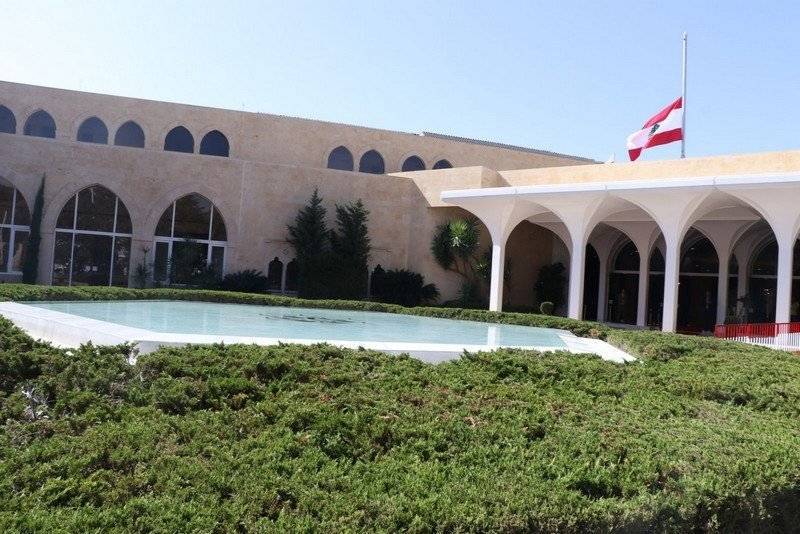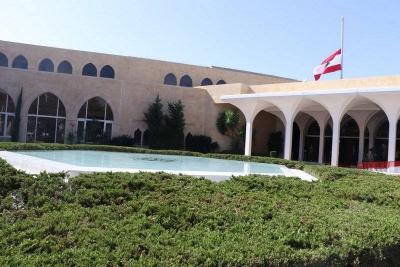The newspaper "The Nation's Call" reported: Following the reaffirmation by Prime Minister Najib Mikati of his government's commitment to enhancing cooperation with the Kingdom of Saudi Arabia and the Gulf states, which includes expressing the intention and determination to continue "serious and effective" work in the context of implementing the clauses of the Kuwaiti initiative and adhering to the decisions of the Arab League and international legitimacy, insisting on "the necessity of stopping all political, military, security, and media activities that originate from Lebanon and affect the sovereignty of Saudi Arabia and the Gulf Cooperation Council, and preventing the smuggling of prohibited substances, especially drugs, to the Kingdom and Gulf states, either directly or indirectly, and preventing the use of Lebanese financial and banking channels for any financial transactions that may harm the security of the Kingdom and the Gulf states"... Saudi Arabia initiated a "hand reaching out" to Lebanon, welcoming these "positive points" in Mikati's statement, expressing through its Foreign Ministry hope that "this will contribute to restoring Lebanon’s role and status regionally and internationally," and reaffirmed "the Kingdom's aspiration for Lebanon to enjoy security and peace, and for the Lebanese brotherly people to have stability and safety in their homeland, as well as growth and prosperity."
Following the Saudi statement, a similar one was issued by the Kuwaiti Foreign Ministry, welcoming what Mikati's statement included, looking forward to "continuing constructive and practical measures" from his government to restore Lebanese-Gulf relations "in a way that contributes to further security and stability for Lebanon and its brotherly people"... thus, the "recipe" of French presidential advisor Patrick Dorell practically supported the Prime Minister and opened closed Saudi and Gulf doors for him, as sources accompanying efforts to mend the Gulf-Lebanese rift led by Paris revealed to "The Nation's Call" that Dorell was the "godfather" of the contents of Mikati's statement, paving the way to achieve the intended goal of launching Saudi assistance mechanisms for Lebanon. These sources indicated that some representatives of sovereign and national forces are presently in the Kingdom, with political, spiritual, and media figures expected to travel to Saudi Arabia in the coming days. Meanwhile, the agenda for the upcoming Gulf Cooperation Council Foreign Ministers' meeting at the end of this month will include preparing an executive framework for joint Gulf work regarding the Lebanese file.
On the other Lebanese side, in a context intersecting with what "The Nation's Call" previously indicated about the objectives of President Michel Aoun's visit to Rome, Aoun demonstrated, in an interview with the newspaper "La Repubblica," a strong desire to "whitewash" and polish the image of "Hezbollah" in the eyes of Italians, praising its weapons and its "resistance movement against occupation," denying that the party and its weapons have "any effect on the security situation of the Lebanese inside." While "evidences and security facts are countless regarding the impacts of Hezbollah's weapons on the lives of Lebanese citizens," opposing political sources emphasized that "the events of May 7, 2008, under the slogan 'the weapon protects the weapon,' alone suffices to refute Aoun's statements," while also reminding that "General Aoun himself arrived at Baabda Palace thanks to Hezbollah's weapons," as Deputy Nawaf Moussawi once openly declared under the parliament's dome.
Adding to the list of Hezbollah's weapon impacts on the internal security and judicial situation in Lebanon, the sources include the cases of the assassination of the martyred President Rafik Hariri and the Beirut port explosion, noting that "the President is overlooking the truth that Hezbollah's weapons are what protect the convicted suspects in the February 14 crime and the accused in the August 4 crime, enforcing a stop to the judicial investigation into the port explosion under the threat of judiciary and crippling the Cabinet, leading to bloodshed in Tayouneh."
Regarding the new developments in the case of restraining the judicial investigator, a glimmer of hope emerged in recent hours for the families of the martyrs and victims of the August 4 explosion, represented by the Supreme Judicial Council filling vacancies in the Cassation Court entitled to examine a series of legal cases, including the requests to dismiss the judicial investigator, Judge Tarek Bitar, signaling a reinstatement of his powers to continue investigations into the port case. With the appointment of the six vacant presidents of the Cassation chambers, the quorum of the members of the Court of Cassation has been completed, leading its members to tackle unresolved cases before them. However, judicial sources did not hide their apprehensions about a return to the obstruction of issuing the decree for partial judicial appointments approved by the Supreme Judicial Council, pointing out that "its approval had already been delayed several times due to political interference."
In this context, partial judicial appointments will require political endorsement through the signature of both the President of the Republic and the Prime Minister, as well as the Justice Minister on the issuance decree, following a constitutional procedure that has been practically set into motion by referring the project to Justice Minister Henry Khoury, who will, after signing it, refer it to the Prime Minister, who will in turn sign it and refer it to the President, who will either sign the decree to make it effective or "keep it in the drawer," as he did previously with the general judicial appointments approved by the Supreme Judicial Council.
While Baabda sources refuse to comment in advance on the project of partial judicial appointments, merely stating to "The Nation's Call": "They have not yet reached the Presidency," circles accompanying this file confirmed that the main challenge facing these appointments will be passing through the "barrier" of the presidential palace, especially since "Hezbollah" will exert pressure to obstruct them so that the judicial investigator cannot resume his work if the quorum for the Cassation Court is completed and the requests for his dismissal are examined, categorizing the "first obstacle" facing the appointments as being at the Justice Minister, whose position on them will reflect the Aounist stance; "If he calls for modifying a name or removing another and replacing it, then this means that the President's team intends to obstruct the new appointments and does not want them to reach Baabda."




